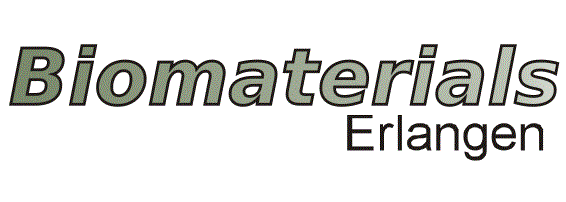Karoline Teichmann
Karoline Teichmann
Master student
Title: Corrosion of an Alginate Embedded Magnetron Sputtered Iron Based Biodegradable Implant Material
Supervisors (in Kiel): M.Sc. Katharina Siemsen, Dr. rer. nat. Christiane Zamponi, Prof. Dr. Christine Selhuber-Unkel
Supervisor (in Erlangen): Prof. Dr.-Ing. habil. Aldo R. Boccaccini
FeMn alloys show a great potential for the use as a biodegradable material for medical vascular implants. Fe and Mn are essential trace element in the human metabolism. Furthermore, FeMn alloys are known for their good mechanical properties. In comparison to pure iron, alloying increase the corrosion rate of the material. Additionally an advantage of FeMn alloys are the magnetic properties. Depending of the Mn amount the antiferromagnetic y-Phase is adjustable and thus is beneficial for biodegradable implant applications. Pure Iron can cause complications during magnetic resonance imaging, such as implant heating, torque, or image distortions due to susceptibility effects.[1] In this work the previously developed FeMn alloy is embedded in alginate, to investigate the effect of degradation rate and biocompatibility. Furthermore, the alginate is RGD modified to attach desired cells for different medical applications. This project is being carried out at Institute for Material Science, Faculty of Engineering, University of Kiel, in the group of Prof. Christine Selhuber-Unkel.
[1] Jurgeleit, Till & Jessen, Lea & Quandt, Eckhard & Zamponi, Christiane. (2018). Magnetron-Sputtered, Biodegradable FeMn Foils: The Influence of Manganese Content on Microstructure, Mechanical, Corrosion, and Magnetic Properties. Materials (Basel, Switzerland). 11. 10.3390/ma11040482.

